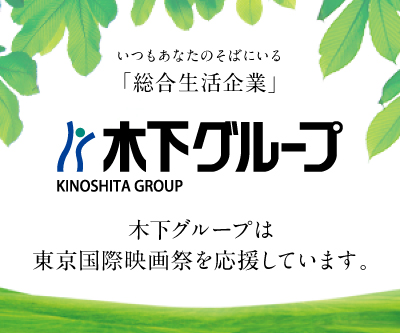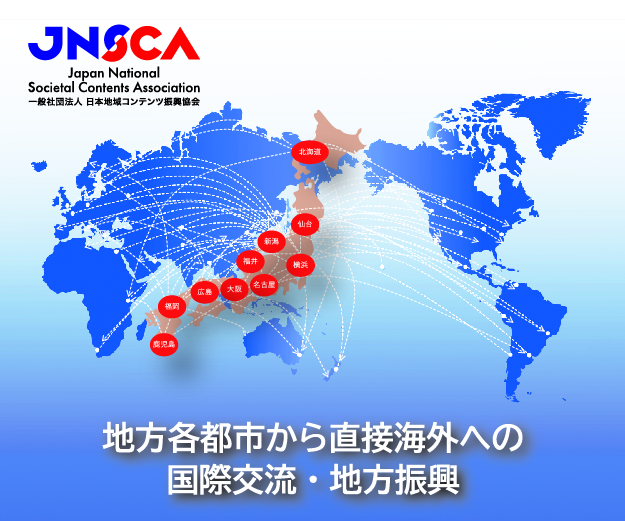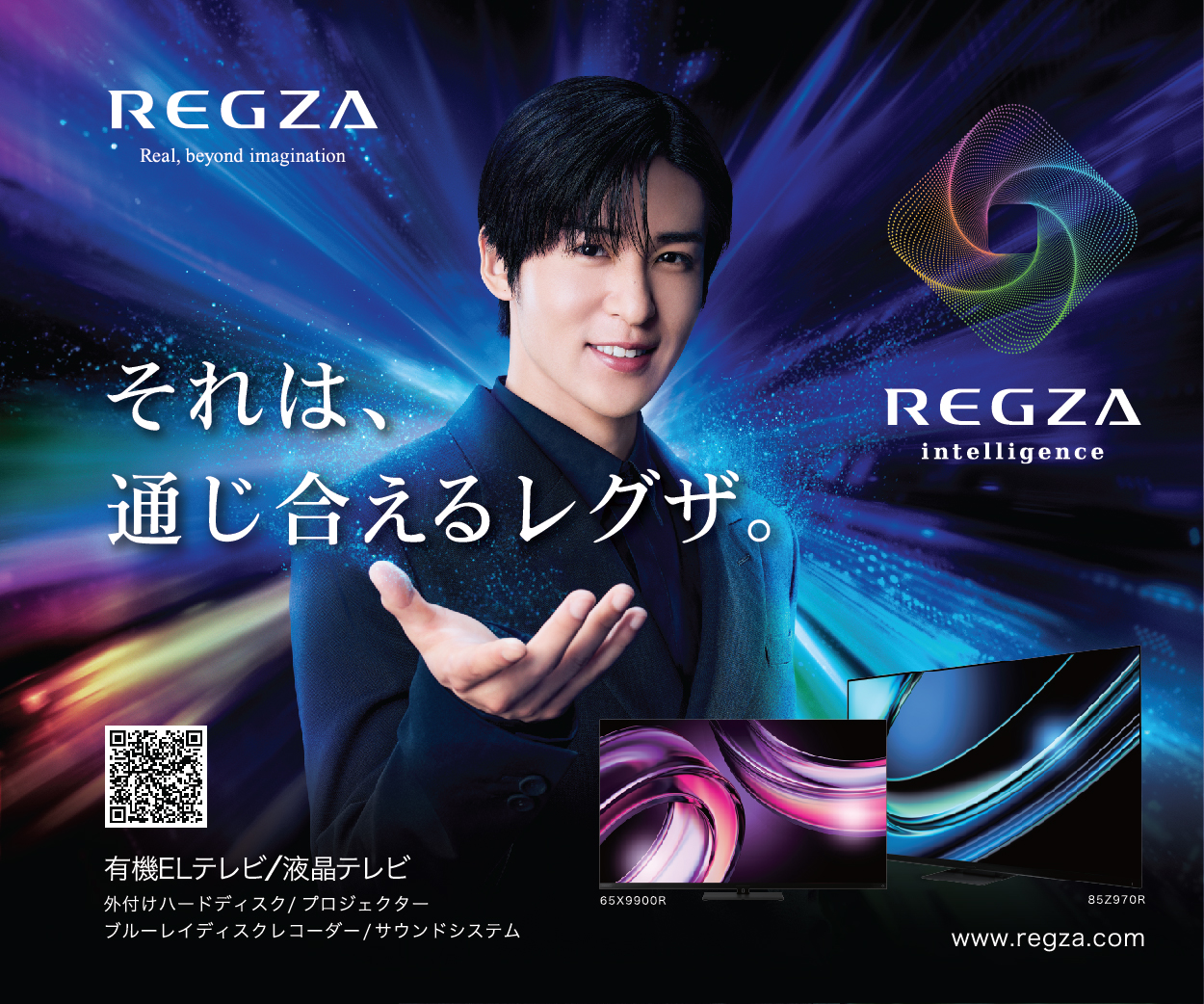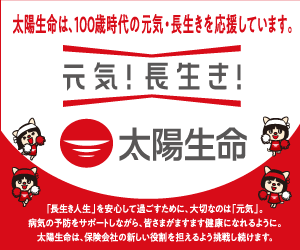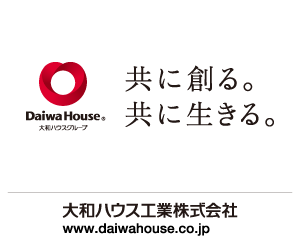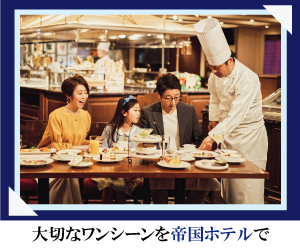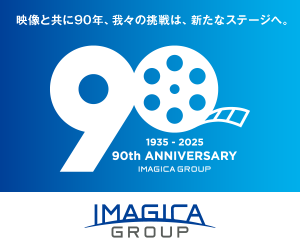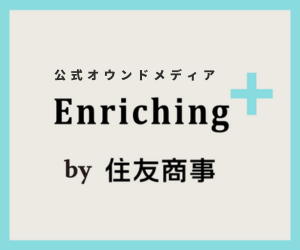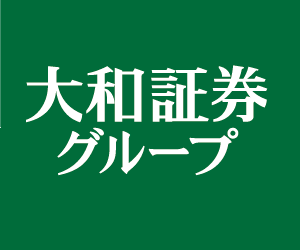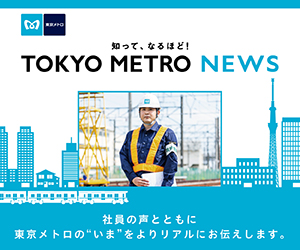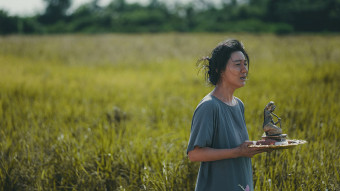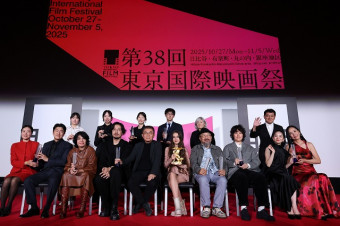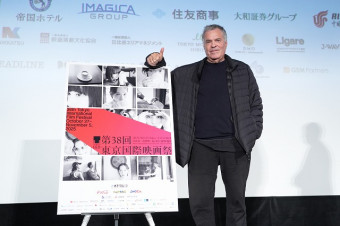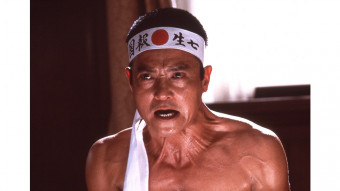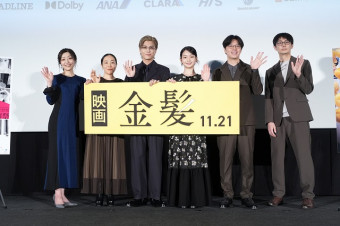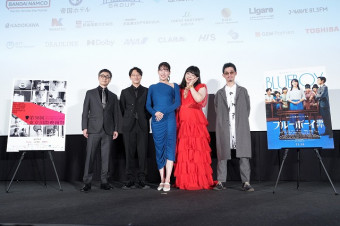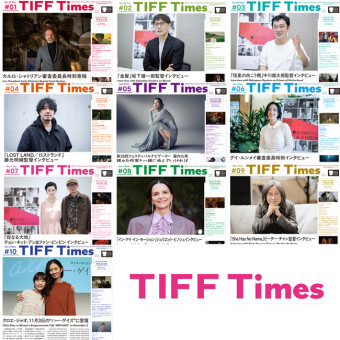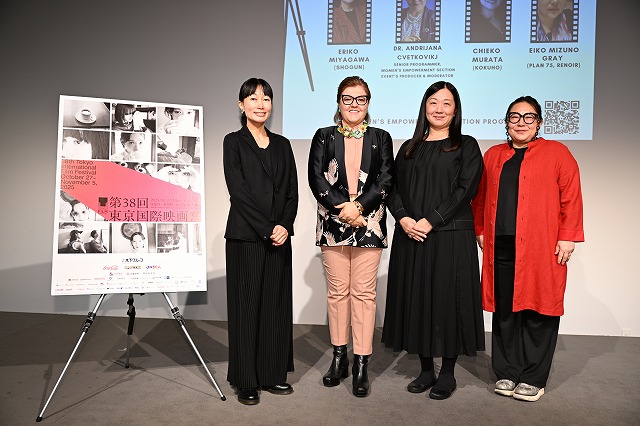
In just its second year of being, the Women’s Empowerment section of the 38th Tokyo International Film Festival is able to demonstrate that it’s captured the zeitgeist, with a provocative lineup of seven female-directed and -focused films from around the world, as well as essential panels on related issues, co-hosted by the Tokyo Metropolitan Government.
On November 1, TIFF Senior Programmer Andrijana Cvetkovikj, who helped pioneer the section, brought together three of Japan’s most internationally active and successful producers in an illuminating session aptly titled From Tokyo to the World: Japanese Women Producers Go Global: Miyagawa Eriko, the Emmy Award–winning producer behind major global hits such as Shōgun, Kill Bill and Silence; Eiko Mizuno Gray, CEO of Loaded Films and producer of acclaimed titles including Plan 75 (Cannes Un Certain Regard Special Mention) and Renoir (Cannes Competition); and Murata Chieko, producer of big-budget studio hits like Kingdom and Kokuho, the latter of which became a national phenomenon, surpassing ¥16 billion at the box office for a live-action Japanese film.
In opening remarks, Cvetkovikj took a moment to honor some female producers who had “paved the way, from Sakane Tazuko and Tanaka Kinuyo, Japan’s first female directors and producers, to Kawakita Kazuko, who brought Japanese cinema to the West, to Matsuda Hiroko, who championed independent cinema in the 1990s.
“We often, when we see a movie, know a lot about the actors, the directors, sometimes the writers, but we rarely hear the story of the film producers. And film producers are the architects of the movie behind the scenes, from the inception, to developing the story, [to writing] the script, to putting the people together, and making the magic happen.”
“So I would like to ask these three remarkable producers, who each have their own unique journey — what was the journey that shaped you and made you what you are today?”
Miyagawa spoke first. “Since I was a kid, I’ve always loved film, and I traveled a lot when I was a kid. I understood that stories have the power to connect people, and I was drawn to that. Right out of college, my first job, I was an interpreter on Kill Bill: Vol. 1 in Beijing. I didn’t know anything. I couldn’t believe how much work it was to create each shot, the chaos and difficulty of it. I fell in love with the process. You know, for me, it meant a lot to understand that it’s not just the process itself, but the bridging that happens. That was so enlightening and it solidified my dream.”
“Was there any impact from working with Quentin Tarantino, of all the people in the world?” asked Cvetkovikj.
“I think it was a gift and a curse because he’s a genius and, you know, I feel like maybe I could’ve been a director if Tarantino wasn’t my first job,” laughed Miyagawa. “I want to be part of everything and know everything, so producing just felt natural to me.”
Said Mizuno Gray, “I was always told that maybe I would never be able to make any money in the film industry. So I started working as a volunteer at the Toronto International Film Festival alongside my regular work. But somehow, I started becoming a professional film publicist at the festival. And while I was publicizing the Japanese cinema coming to Toronto and other film festivals outside of Japan, I just started wanting to see the whole process of filmmaking from the beginning till the end. I asked around and someone told me ‘you’d better become a producer.’ I wasn’t really sure what the producer does, but I thought, okay, if I can see the whole process from the beginning to the end, then that must be what I should try. And then I set up my company with my husband, Jason Gray, as producing partners, and started producing.”
Murata said, “I started loving films in primary school. I grew up watching Hollywood films, and didn’t have a chance to see a lot of Japanese film when I was young. When I was in high school and college, American indie film was at its peak. After graduating from university in Japan, I still wanted to study film, so I decided to go to film school in the United States. I did basically everything from writing to acting to shooting and editing. And I wasn’t good at any of it. So the job that was left for me was to produce, [which meant] fundraising, securing locations and buying food for the crew.”
“I was always more interested in the business side of film, and after graduating, I was thinking about going to graduate school to study more. But I had a chance to do an internship at the Sundance Institute from 2001 to 2003. At that time, they were trying to expand internationally and started the Sundance-NHK Award with NHK in Japan. Then I was lucky enough to get a job at NHK, so I came back to Japan and worked as an executive producer’s assistant. And later, I was bumped up to coordinator and oversaw all the production work and mainly the business side, but also the development site. And that’s how I started in the Japanese film industry.”
Turning to Miyagawa, Cvetkovikj asked, “What makes a story travel? And what makes a producer who works in the Hollywood system valuable on set, especially in navigating and managing the different cultural expectations, and different ways of working on the set, as well as bridging the difference between the Japanese mentality and the Hollywood studio system?”
Responded Miyagawa, “I can’t take credit for the success of Shogun, but I think it resonated with so many people across the globe because it’s a universal story on this grand, epic scale with a very specific world that was very well executed and built.”
“As for a [managing cultural expectations], there’s a different environment in Hollywood. I think it’s the ability to listen and be flexible. I think empathy goes a long way, and you need to try to put yourself in the other person’s shoes and understand where that person’s perspective and priorities are. Filmmaking is such an intense process, and it’s not just cultures or languages [that need bridging]. It could just be that people from the camera department have different priorities from people in the publicity department. So I think it’s really about having the imagination and patience to learn where everybody’s coming from, and negotiating that, and ultimately having clarity in terms of where your goal is, what is the story you want to tell? And just communicating that very clearly, I think is what, as a producer, I endeavor to do.”
Cvetkovikj next asked Murata, “When you started developing Kokuho, what were some of the creative and practical decisions you made that helped the film find its rhythm and scale? And did you expect that it would become such an international hit as well?”
“Like Eriko-san, I can’t take credit for its success,” said Murata. “That’s all up to the director and the crew members, the screenwriter, and our great actors. But from the early stage, my experience helped me a lot to meet with international film festival programmers and international filmmakers and producers. And they give you a lot of input. A lot of people told me, when they see a Japanese film at a film festival, ‘Where is the Kurosawa? Where is the Ozu? Where are all those films that were grand in the past? What happened to Japanese cinema?’”
“And true, there are no more epic stories that conquer the world. So I’ve been thinking about this question for over a decade. And I think my answer is like, okay, let’s try to make that kind of film. The grand studio film, but with quality, with entertainment. And it wasn’t easy to share the vision with investors or my co-producers, or even with the creative partners. But I think we had a great cast and crew, capable of making the same level as a Korean film. So that enabled the film to be successful.”
Noting that Mizuno Gray has worked with Kurosawa Kiyoshi and Kore-eda Hirokazu, Cvetkovikj said, “You wear many hats as an independent producer. How do you make the decision about which project you want to take on? Because you have to be selective. And what are the most difficult challenges to get a project off the ground?”
Mizuno Gray responded, “I run an independent company, so I don’t have many options. I mean, my slate is not that huge. So I have to be very selective. And as someone who produces auteur films, I really have to align with the creator and filmmakers. So understanding the creator’s vision and mission, understanding them and then also having a great relationship with them is very important to me. So first I will try to get know the filmmakers, as a person and a filmmaker. Then if we can, we align with their vision and storytelling, then I will go for it with them. People think the director has to have a vision, but the producer also has to have a vision we can align with, and that’s very important, I believe.”
“[As for challenges] the development stage is very important. So before I start financing a film, I will spend quite a lot of time with the team to develop the screenplay. And if the emotion is there, then the story can go outside of Japan as well. So for me, developing the story and taking a slow pace even, taking care of the story, and the filmmaker’s vision is very important, and then once the story is ready to share with the people, I usually launch the project at a project lab outside of Japan to see the reaction from international producers. If their reaction is good, and if they feel like this emotion can travel outside of Japan, then I decided to move on to the next phase, which is financing.”
“From your experience, what are Hollywood production companies really evaluating when they’re reading a script?” Cvetkovikj asked Miyagawa. “If someone thinks they have a great script, a great idea, how should they approach Hollywood?”
Responded Miyagawa, “Honestly, it depends on the project and who the director is, and also what the climate is, because Hollywood has ups and downs. I think that especially for up-and-coming writers or directors, packaging is very important. It’s a business and they need to understand what it is, who the new producer might be, who’s the director, if there’s cast attached, if the story is in English… I think building a strong package is the key.”
Said Cvetkovikj, “Would you say the story is the most important thing, or having stars attached, or is it really a balance of all of that?”
“I think it depends on what you’re looking for and what you already have,” said Miyagawa, and whether it’s also an organic collaboration.”
Turning to Murata, Cvetkovikj asked, “How do you choose which stories you bring to the screen? Obviously, you have a different starting point.”
Concurred Murata: “I think the difference between us is that I’m a company employee in Japan, so I will make films or TV shows that make money for my company. I’ve been working for different companies for most of my career. I learned that as a company employee or studio executive, the most important thing is what to bet on. It could be a story. It could be a talent, and talent is very, very important because this business is all about putting money into talent. So if you can believe in the talent, you bet on it. It’s a package in a way, because if there is an amazing talent, but the story doesn’t let the talent shine, it’s not gonna be successful. So it’s all about determining if the story will let talent shine.”
Cvetkovikj said, “I want to talk a little bit about mentorship and mentoring because one of the reasons we do this kind of talk session is to inspire the next generation of Japanese women filmmakers. Can you tell us who were your early mentors and now that you’ve reached the top, are you interested mentoring younger female directors?”
Mizuno Gray explained, “I didn’t study filmmaking at school. So once I started producing, I went to EAVE, the European Audiovisual Entrepreneurs organization, and that was my university of filmmaking. And there my mentors were international producers I met outside of Japan. But in Japan, I really have to name a couple of people who stuck by me, even before I start producing. These people are very important for me. Jason Gray is my partner, and Ichiyama Shozo from TIFF, Hayashi Kanako, Kubota Yuri, and Aihara Hiromi. They didn’t give up on me. They believed that I was gonna contribute something to the film industry one day.”
“Currently, I’m quite open to talking about my experiences, because those people supported me. So I want to support young filmmakers. I’m open to sharing my experiences, both bad and good.”
Murata related, “I studied film in the US and started working in the US, where there are more internships and more females in the business. I learned a lot from my bosses at Sundance, some of whom were women. After coming back to Japan, there were many females I learned from, but they are not really mentors in the sense that you follow them and you learn. There is no formal system of mentoring here. But I was lucky because I started working in Japan in an era when female executives were already working very actively. I think most of them are English speaking, so speaking English definitely helped me to get connected to those amazing female leaders. So if I would recommend anything to someone younger than me, I would say start learning a language. It doesn’t need to be English, but any language that’s not your world. It gives you a competitive edge.”
As for Miyagawa, “I remember dreaming of becoming a sort of Hollywood-type producer who’s creating big global movies and, you know, I remember being a little crushed in my 20s when I couldn’t see my career path. I’m not American. I can’t just move to Hollywood. I couldn’t really get a job in Japan. Companies weren’t looking for somebody who came back from abroad. It wasn’t for me. But I knew I really wanted this and I really looked for somebody on this path that I could follow and it was difficult. But I kept at it and I think I realized that I can always find advice and ideas and inspiration from anybody.”
Cvetkovikj asked one final question: “What do you think could make it easier to improve the situation on the set or in the industry for women filmmakers?”
“I would encourage female producers or directors to focus on stories that depict the female perspective,” said Mizuno Gray. “I like working with filmmakers who follow those voices. In Japan in general, the gender equality imbalance makes it difficult, so you may feel things don’t move ahead easily, but we’re still moving forward. [You should] try to be positive, and be sure to protect yourself contractually and system wise. Learning English is good to widen your possibilities.”
Said Murata, “Because I work for a company, we need men to support women too. Supporting women is one thing we can do. In terms of support on set, I’ve heard that childcare is basically taken care of by the company overseas. We can’t do that in Japan. I was talking with a female director and she said she needed to have childcare and could only work a certain number of hours. If the government subsidizes these costs, that would be great.”
Miyagawa agreed. “If we can limit the number of hours, that would be a good start. I’m a single mother and I brought two kids to the set of Shogun. We tried to limit work hours to 10 hours a day with weekends always off, so I could spend time with them when they were off school. I don’t think this could happen in Japan.”
In terms of overall workplace lessons, Miyagawa emphasized, “Don’t pay too much attention to your own likability. Be straightforward with your communication. When I started doing that, things got smoother.”
Said Murata, “In my 20s, I tried to voice my own opinions at meetings, but clients would say, ‘we’re not asking you, we don’t want your opinion.’ I feel like things are getting a bit better. In the male-dominated corporate workplace environment, this isn’t going to happen overnight, but have patience and wait. As you wait, do what you can do as a female. I think the situation will continue improving.”
“I was the type of person who wasn’t good at conforming,” admitted Mizuno Gray, “so I chose the niche path. As Eriko-san said, don’t try to be likable. See where your strengths lie and how you can use them to your advantage. As you yield results, higherups will notice, and your career will advance.”
Women’s Empowerment
From Tokyo to the World – Japanese Woman Producers Go Global
Co-hosted by: Tokyo Metropolitan Government
Panelists:
Andrijana Cvetkovikj (Senior Programmer, Tokyo Internaitonal Film Festival)
Miyagawa Eriko (Producer)
Murata Chieko (Producer)
Eiko Mizuno Gray (Producer)











